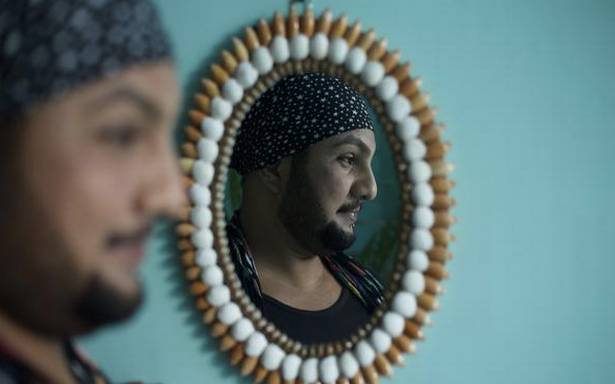From male Lavani dancers to the Sikh community, a look at short films that delve into specific cultural insights of our queer society
Mohini: Men in Sarees is one of the 200-plus films screened at the 12th edition of the Kashish Film Festival, dedicated to LGBTQIA+-themed films from across the globe. It is also one of two films I watched where the mythological figure of Mohini is invoked — the other being Tales of Another Radha, which focusses on the philosophy of the Bauls, a musical and religious nomadic group from Bengal. Mohini is the feminine avatar of Lord Vishnu, which makes her an important and oft-invoked symbol in the LGBTQIA+ canon. So while the windows into, say, queer cultures in Mexico, the UK and Argentina were quite interesting, it’s the Indian contingent that I had my eye on. When it comes to a country as large and diverse as India, local cultural differences are key to understanding the specifics of a situation. For example, Mohini, the 69-minute documentary, was complemented very well by The Outcasted, an eight-minute Marathi/English documentary directed by Gautami Purushottam Berde. It is shot mostly in a red-light district in Pune, where a medical NGO, Kayakalp, is doing its best to improve the lives of the area’s transgender populace. Together, these two films give us some unique insights into the specifics of LGBTQIA+ lives in Maharashtra.
A still from ‘Mohini: Men in Sarees’ | Photo Credit: Special Arrangement
Tracing mythology
Similarly, Tales of Another Radha, directed by Sudipto Kundu, is about how the Bauls of Bengal view Radha and Krishna. We are shown how certain statues show the two locked in an embrace, with an ‘Om’ between them — and made in such a way that Radha has certain traditionally masculine attributes while Krishna has some feminine ones. This is something that’s unique to the region. And much of it has to do with the philosophies of the Bauls.
Shaktinath Jha, a writer and teacher, says in the film, “There’s a phrase that keeps recurring throughout Baul music. The male is asked to accompany nature [the feminine] by being nature.” The word ‘prakriti’ is used interchangeably here in Bangla — it can mean ‘nature’ but also ‘the feminine’. At one point, an elderly Baul explains, with a twinkle in his eyes, how experienced members of their group had started to collapse gendered ways of thinking, of being, within themselves. “When a Baul reaches the ‘sadhak’ [yogi’s] stage, the distinction between ‘he’ and ‘she’ ceases to exist. It is a feeling that cannot be described, only the person who goes through it knows,” he says.
The Sikh stereotype
Of course, as fascinating and instructive as these gender-fluid traditions are, there are important films that choose to focus on the very real, quite horrific instances of discrimination and violence (both physical and mental) visited upon LGBTQIA+ communities. For example, Sukhdeep Singh’s documentary Sab Rab De Bande is about the Sikh LGBTQIA+ community and it has more than a few heartbreaking testimonies.
Sikh men, of course, are traditionally not allowed to cut their hair; in orthodox homes this is a huge no-no. This makes the lives of Sikh trans women very difficult. In Sab Rab De Bande, we meet Ritika Shergill, a Sikh trans woman, who had to trick her parents into letting her cut and style her hair. And even after she underwent hormone therapy and a sex reassignment operation, she was lured under false pretences by her parents into a de-addiction centre, where she was locked in with 70-odd cis men. The director, Sukhdeep Singh, a gay Sikh man, turns the camera on himself during a segment to show us messages he received on Grindr, the social networking and online dating app for queer people. Most of them went along the lines of ‘No Sardars please’ or ‘Not interested in Sikhs’. According to him, there is widespread discrimination against Sikhs among gay men, particularly in North India.
This happens for a number of reasons, as he explains in the film: during colonial times, the British emphasised and amplified the stereotype of Sikh men belonging to “a warrior race”, of being fearless and hyper-masculine in the way they presented themselves. In the gay male dating scene, these perceived stereotypes can work against your favour quite easily, not least because a lot of gay men have been bullied or subjected to forms of ridicule and ostracisation by hyper-masculine straight men (of various communities).
The films at Kashish, therefore, remind us that broad-strokes assessments of queer cultures can miss out on some crucial nuances, things that have to be heard from the horse’s mouth, so to speak.
The Kashish Mumbai International Queer Film Festival is on until September 5. mumbaiqueerfest.com
Source: Read Full Article


